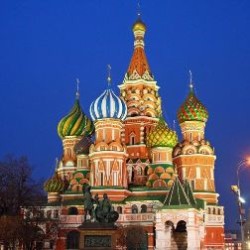Despite War On Online Poker Its Business As Usual In Russia

In April, we reported on Russia’s continuing moral crusade against online gambling, which took a more proactive stance recently after a directive was sent to its federal telecommunications watchdog Roskomnadzor requesting more than 50 gambling websites were blocked inside the vast country, including such major players as Pokerstars, bwin.party, Ladbrokes, UniBet, SportingBet, and Betway.
A few weeks later, however, and Russian internet poker players will be relieved to know there has been no major disruptions to financial processing services operating within Russia, and that as far as many online gambling operators are concerned it continues to be business as usual.
Online gamblers circumvent ISP block
Towards the end of 2012, a Supreme Court ruling made it illegal for websites to “disseminate information that is restricted in accordance with Russian law, including, but not limited to, on gambling.” The responsibility for blocking access to such sites was then placed on the country’s internet service providers (ISP), and by September 2013, one of Russia’s biggest ISP Beeline then blocked access to PokerStars.com “in accordance with the legislation in force.”
Nevertheless, online gamblers were easily able to circumvent the block and access PokerStars and other blacklisted sites, simply by using another public Domain Name Systems (DNS), like Google, as well as a variety of other methods, including the use of virtual private networks (VPN) and anonymous proxy servers.
Putin’s anti-gambling stance
In June 2009, Russian lawmakers forbade all live casinos from operating in the country outside of four specifically designated gambling zones located in isolated rural areas far from any population centers. Such is the country’s disdain for gambling that at least 30 major casinos, as well as around 500 smaller gambling clubs were forced to shut down with an estimated loss of 400,000 jobs.
Last year, amendments were then made to Russian law in which people considered to be addicted to gambling, or alcohol or drugs for that matter, could be ruled “incompetent” and have their assets seized by the Russian state. As a report in Russia Today (RT) stated at the time:
“The incompetent person would then be put under guardianship. The guardian would have the responsibility of dispensing that individual’s income, whether it was a salary, pension or other form of income. The individual would still be allowed to carry out minor daily transactions.”
Gambling sites thriving in Russia’s grey market
Instead of anti-gambling legislation reducing the number of gamblers inside the country of 143 million people, however, gamblers have instead still managed to continue playing at the country’s numerous illegal underground clubs, while on the internet Russian gamblers still constitute a significant part of the global online poker environment.
Although smaller companies such as Betclic-Everest and Bet-at-home have withdraw from the Russian market altogether, and Betfair says it is no longer accepting deposits from new Russian players, most of the world’s biggest poker rooms consider Russia’s rulings to apply only to those website operators located inside Russian Federation territory. These include PokerStars which boasts around 20,000 cash game players over a seven-day period, and the second most popular poker room in the world 888poker, with 2,200 cash game players.
As a PokerStars statement read after its PokerStars.com domain was blocked: “We are aware of the recent situation in Russia. At this time we do not believe this changes our ability to offer services to Russian players. As such our operations continue as usual.. Our terms and conditions make it clear that our services are not for use in jurisdictions where it is illegal to do so, but the measures taken by Roskomnadzor, and the resulting action with the Common Registry of Banned Websites that prevents access to our PokerStars.COM website, does not affect [the] ability to continue playing at PokerStars.”
Consequently and in spite of Russia best efforts so far, the country will continue to have a hard time trying to reign in grey market operators, in much the same way as the USA is struggling to do since Black-Friday in 2011.
Worrying trend for future
While Russia’s anti-gambling crusade has had the effect of driving more of the country’s gamblers online and into the arms of unregulated, offshore gambling sites, in the long run there are concerns a wider crackdown by authorities could involve somehow enforcing a ban on the software customers use to download the various websites. If that was to occur then it could spell the biggest blow to the online poker industry since US players exited the global market in 2011.










